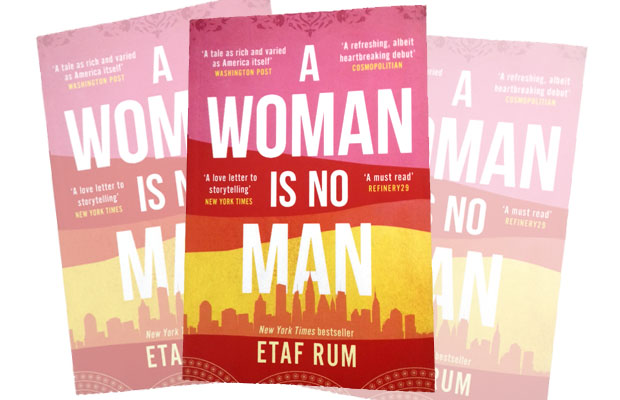
“A Woman Is No Man” begins in 1990.
Seventeen-year-old Isra is a quiet and obedient girl, living in Palestine. In her family, an early marriage is desirable for daughters, and the story begins as Isra meets and travels to America with her new husband, Adam.
Isra is unsure what to expect — will her marriage be traditional, like that of her parents? Will life in an American family bring more freedoms? Will it bring love?
Isra’s new mother-in-law, Fareeda, quickly makes it clear that, in her view, a woman’s only worth is providing sons — daughters are a burden.
Isra realises that if she’s to survive, she’ll have to keep her hopes, opinions and fears to herself.
As time passes with no sign of a son, Isra feels suffocated by loneliness and despair.
Fast-forward to Brooklyn, 2008, and the parallel story of Isra’s eldest daughter, Deya.
Although Deya is still at school, her grandmother has begun to arrange for suitors to visit.
Deya is obedient, but would like to go to college before marriage. When a letter is left on Deya’s doorstep, it challenges her to view her family and her future in a new light.
How can Deya move forward, when she feels weighed down by the past?
As Fareeda’s own backstory unravels, it allows us to understand why she’s so adamant about what’s best for her granddaughters.
Giving everyone a voice
Reading this gives you a window into Isra and Deya’s world; the writing is so strong that you feel sympathy for even the less sympathetic characters.
But reading Fareeda’s story in particular reminds us that everyone’s voice deserves to be heard if we’re to understand each other.
And that’s what this book is all about — giving everyone a voice.
An astonishing read, “A Woman Is No Man” is Etaf Rum’s first novel, and is already being compared to Khaled Hosseini’s wonderful “A Thousand Splendid Suns”.
For more Book Reviews from the team, click here.




